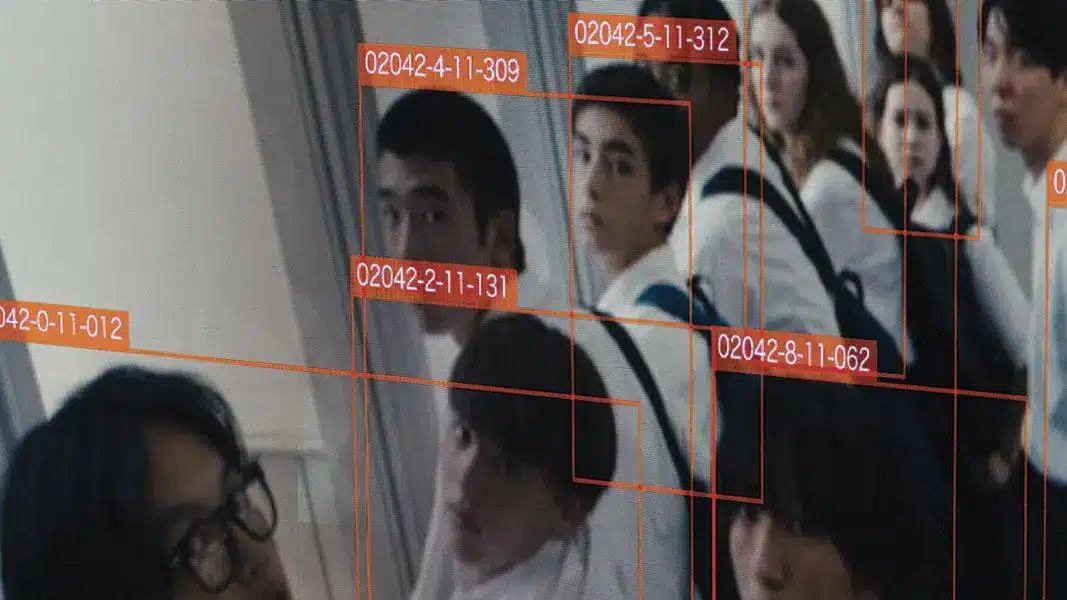
Happyend, Neo Sora’s high school story may have the premise of a Black Mirror episode, but trades in optimism, not pessimism.
Judging by Happyend’s opening nightclub sequence alone, you know this is going to be a scintillating experience. Neo Sora’s follow up to last year’s Ryuchi Sakamoto: Opus is a near-future coming-of-age story with a sweetly optimistic script and a prescient message. It’s also one of the best films showing at Venice so far this year.
Yuta and Kou are two inseparable high schoolers who have been friends since a young age. The pair have aspirations to become DJs, and along with their posse of friends: Tomu, Ming, and Ata-chan, get up to mischief and ruminate about their futures. Kou, who is ethnically Korean, becomes politicised against the far-right government, who use earthquake warnings to control Japan. Yuta wants things to remain as they are.
Like all of the best coming-of-age stories, Happyend has a lovable crew of friends with a sparkling chemistry that comes alive in the pensive moments as much as it does when Sora shows them causing mischief in the streets of Tokyo. All first-time actors, the main cast perform their roles with a lightness, and, even if the script can feel simplistic at times, especially in how it handles the bigger political themes—they pull off their dialogue in a way that feels natural; as though they really grew up together. This makes the stakes so much higher from the audience’s perspective, as a camera system is installed in the school that deducts points from students caught misbehaving (even kissing in the hallways), putting their education at risk.
Obviously there’s some smart commentary here on fascist nanny states, censorship, and a warning on where we might all be heading as a society. But unlike Black Mirror or Asif Kapadia’s 2073, this isn’t a hopelessly bleak vision of that future. The kids—Sora wants to tell us—will be alright. They’ll fight through the oppression. They’ll come together. They might even make a change.
The clap-happy optimism might make it seem like a Young Adult movie (as one critic pointed out to me) and unlike Euphoria, or other media that show Gen-Z at school, it doesn’t show sex or violence as a main part of growing up. But innocence is Happyend’s biggest charm —even if it comes off as a bit naive and juvenile in the way serious matters are resolved: sometimes, a sit-in at the head master’s office can be ended through the power of friendship and the taste of kimbap. Yay!
Being Ryuchi Sakamoto’s son means that Sora has picked a brilliant soundtrack that is all mood and atmosphere. Set against the Tokyo skyline, the pulse of techno and house tracks are met with ambient tunes that create a swift pacing to many of the sequences. It’s a film that doesn’t believe we’re all really so screwed; a vision of the next generation that pays them more dues than they’re used to in the media. Oh, and it does have a happy end, obviously.





